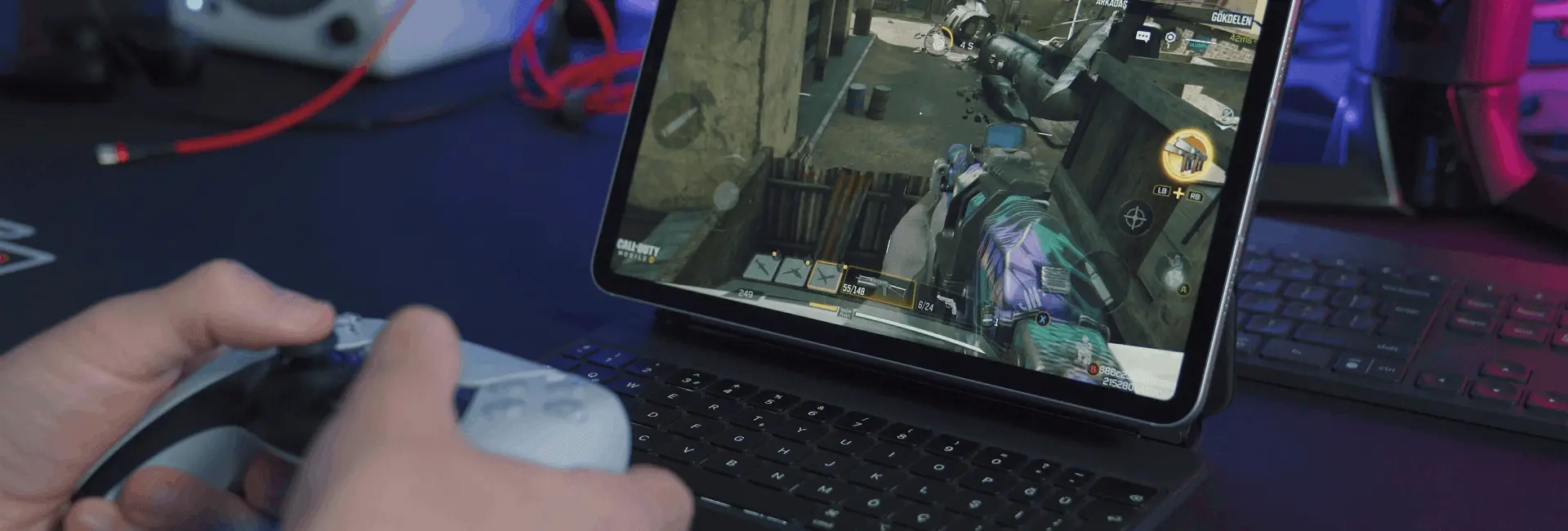
Table of Contents
With a legacy of over two decades and over $30 billion in revenue, Call of Duty isn’t just a game—it’s a global phenomenon and a financial behemoth. Have you ever wondered how this franchise stays ahead in the wildly competitive gaming industry? From blockbuster sales to cutting-edge digital strategies, we’re diving into the powerhouse behind the numbers. Get ready to explore the business brilliance inciting Call of Duty’s unmatched success.
Call of Duty is universally considered one of the most successful gaming franchises ever made, with an outstanding $30 billion in lifetime revenue. From its iconic console blockbusters to its supremacy in mobile gaming, Call of Duty has fundamentally reshaped how games monetize and engage with players. This franchise’s capability to adapt, innovate, and utilize new business models to drive revenue constantly sets this franchise apart.
At Juego Studios, a leading game development studio, we explore how Call of Duty has perfected monetization through microtransactions, downloadable content (DLC), battle passes, and mobile gaming. The massive success of titles like Warzone and Call of Duty: Mobile showcases how these strategies create a versatile revenue stream. Call of Duty has become a financial powerhouse in the gaming industry, from initial game sales to in-game purchases and esports. Read on to uncover how Call of Duty became a financial giant in gaming in this blog.
The traditional spine of Call of Duty’s business model remains its premium game releases on a large scale. With lifetime sales exceeding 425 million copies, the franchise has learned to utilize annual releases. The annual release strategy has several factors, such as:
One such example is Modern Warfare II, which successfully generated over $1 billion within two weeks of its launch in 2022. This demonstrated the unremitting strength of the premium model in an increasingly free-to-play world.

The release of Call of Duty: Warzone marked a pivotal moment in the franchise’s evolution. By transitioning to a free-to-play model, the latest Call of Duty installment removed the upfront cost for players, making it accessible to a massive and more diverse audience. This strategic shift fueled remarkable engagement and profitability:
The success of Warzone highlights how free-to-play models, when executed effectively, can outperform traditional premium sales in terms of player engagement and financial returns. With each update to Warzone and the latest COD game, the franchise continues to innovate and strengthen its position in the gaming market.
Call of Duty’s mobile strategy represents one of its most successful business evolutions, presenting the potential of translating premium gaming experiences to mobile platforms. The numbers tell a persuasive story:
This success underscores the ability of Call of Duty designers to adapt the franchise’s renowned gameplay to new platforms without sacrificing quality or profitability.

Today, Call of Duty’s monetization strategy revolves heavily around microtransactions. This model has evolved to offer multiple layers of in-game purchases that unfold far beyond the initial purchase of the game itself. These microtransactions can be broken down into three categories:
These virtual tokens, called Credits, allow players to purchase cosmetic items and gameplay enhancements. They create an effortless experience in Call of Duty where players can spend money without directly feeling like they are handling real currency. The ability to earn or purchase these credits through microtransactions generates a recurring revenue stream that keeps players engaged.
One of the most popular monetization features in Call of Duty is the battle pass system, introduced as a seasonal content model. The system offers premier rewards and new content to players who purchase the battle pass and complete specific challenges. The rewards are tiered, with each level offering increasingly desirable items, encouraging players to continue engaging with the game to unlock all the rewards. This creates a predictable and recurring revenue stream from players who want to complete the pass and gain exclusive in-game rewards.
Call of Duty offers a variety of cosmetic items, such as character skins, weapon modifications, and other customization options. These items do not affect gameplay balance but allow players to express their individuality and gain social status within the community. The desire to personalize one’s in-game avatar drives significant spending on cosmetics, further cementing microtransactions as a crucial revenue source.
The global success of Call of Duty, particularly in mobile gaming, reveals fascinating insights into international market dynamics. The United States dominates revenue generation, contributing 50% of mobile earnings, followed by Japan at 7% and Mexico at 5%. This distribution isn’t merely coincidental – it reflects Activision’s sophisticated understanding of regional gaming preferences and spending habits. The company enforces carefully tailored content strategies in each market, modifying everything from pricing to promotional campaigns to match local consumer behavior. Special events and cosmetic items often incorporate cultural elements relevant to specific regions while maintaining the core Call of Duty experience that players worldwide have come to expect.

The competitive gaming world has become integral to the Call of Duty franchise. The Call of Duty League (CDL), launched in 2020, has cemented the franchise’s position as an esports industry leader. This league generates substantial revenue through sponsorships and advertising deals with major brands, improving the franchise’s visibility and adding a layer of income beyond traditional game sales.
In addition to traditional sponsorships, the player-driven ecosystem of streaming platforms like Twitch has also contributed to Call of Duty’s success. Streamers and professional players help promote the game, creating a viral effect that drives sales, engagement, and microtransactions. The rise of streaming revenue also helps boost the franchise’s visibility and indirectly contributes to ongoing game sales and in-game purchases.
This competitive gaming scene creates direct revenue and drives engagement and retention across the franchise.
The evolution of Call of Duty’s DLC strategy reflects the franchise’s ability to adapt to changing market demands while maximizing revenue potential. Moving away from traditional map packs, the modern DLC approach integrates effortlessly with the battle pass system, offering a steady stream of content that keeps players engaged year-round. Premium content packs now include everything from operator bundles to weapon blueprints, while seasonal map updates ensure the core gameplay experience remains fresh. Unique event content, often tied to cultural moments or popular entertainment properties, creates additional annual purchase incentives.
At Juego, we specialize in game development outsourcing services, focusing on creating high-performance games that captivate audiences and generate revenue. Whether you’re looking to build immersive mobile games, free-to-play titles, or esports-ready experiences, our expert team provides end-to-end game development solutions tailored to your needs.
From concept to deployment, we utilize cutting-edge technology and innovative monetization strategies to ensure your game engages players and drives financial success. Let’s transform your vision into the subsequent big success in gaming!
Call of Duty’s remarkable success story provides valuable insights for the future of gaming monetization. The franchise’s ability to adapt its business model to changing market conditions while maintaining revenue growth demonstrates the importance of flexibility in modern gaming. The successful integration of multiple revenue streams – from premium sales to microtransactions, esports to mobile gaming – shows how diversification can create resilient business models. Strong player engagement, driven by regular content updates and cross-platform integration, remains crucial for long-term success. As the gaming industry evolves, these lessons from Call of Duty’s business model will become increasingly valuable for companies looking to succeed in this competitive market.
The future of gaming monetization will likely see even greater integration between different platforms and revenue streams, with successful franchises needing to balance multiple business models simultaneously. Companies that can adapt quickly while maintaining player satisfaction will be best positioned to succeed in this dynamic market. Through careful study of success stories like Call of Duty and partnerships with experienced developers like Juego Studios, gaming companies can build sustainable, profitable franchises that resonate with modern gamers.
Each stream contributes to a diversified revenue model that maintains profitability across market changes.
Microtransactions are a cornerstone of Call of Duty’s monetization strategy. Players spend real money on in-game currency, such as Credits, which can be used to buy cosmetic items, character skins, and weapon mods. These purchases do not affect gameplay balance but enhance the player’s experience through personalization. The success of microtransactions is driven by their seamless integration into the game, which encourages spending without feeling like a forced gameplay component.
Call of Duty generates billions annually thanks to its diversified revenue streams. As of recent reports, the franchise contributes significantly to Activision Blizzard’s annual revenue, which reached $9.8 billion in 2022. With its core game sales, microtransactions, seasonal content like Battle Passes, and a thriving mobile platform, Call of Duty alone accounts for a substantial portion of this figure, often bringing in several billion dollars annually.
Call of Duty integrates in-game advertising as part of its revenue strategy. This can include branded items or ads within the game environment, which are used to promote real-world products and services. Integrating these ads, particularly in free-to-play modes like Warzone, adds a revenue layer, bringing CoD money without interrupting the player’s experience. These ads contribute to the game’s profitability, particularly with sponsorships for esports tournaments.
While traditional game sales contribute significantly to Call of Duty’s revenue, the shift to a free-to-play model for Warzone has allowed Activision to reach an even larger audience. By offering the game for free and monetizing through microtransactions, battle passes, and seasonal updates, Call of Duty can generate revenue from millions of players who otherwise might not have purchased the game. This model has proven highly effective, generating substantial daily revenue and extending the franchise’s lifecycle.